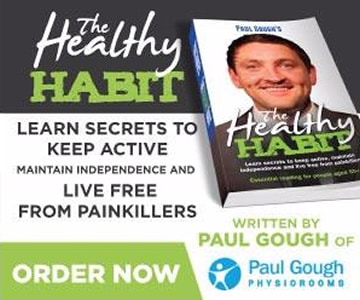If you are thinking about starting to exercise again, we’ve got some tips to help you ease yourself back into daily exercise the right way.
In the Paul Gough Physio Rooms clinic recently, we have been busy treating some patients with physiotherapy that have rushed back into exercise now we’re heading into spring, and they have ended up injuring themselves.
The weather has been brighter and warmer, the road out of lockdown is laid out ahead of us. The will and desire to get outside and get some exercise is there.
Without wanting to put a dampener on the positivity (which we all need right now!), the last thing you want to do is injure yourself in the next few weeks as we race towards freedom!
The temptation is always there to jump into exercise, and it is an important part of staying healthy for everyone. Most people 50+ should make aerobic exercise, strength training and balance and flexibility exercise a part of their weekly routine in order to prevent health problems and remain as independent as possible.
When it comes to mental health, the benefits exercise can bring for the mind cannot be under-estimated.
But, be aware, sometimes too much of a good thing can be bad. Over-exercising can lead to exhaustion and injury that can take longer to heal for older adults.
When that happens, they may need longer periods of rest between sessions and feel exhausted instead of energised.
We just urge a bit of caution and a sensible outlook. Remember, it’s a marathon not a sprint….
Our top tips…
- Stay hydrated. Drink plenty of water before, during and after you exercise.
- Know your standards. If you start feeling dizzy, lightheaded or nauseated during exercise, stop. Similarly, stop your workout if you feel sharp tightness, pain, throbbing or burning.
- Take it slow. Begin an exercise routine slowly to allow your endurance to increase. If your exercise program leaves you feeling tired all day, you are probably pushing yourself too hard.
P.S. Hopefully you have read our positive vaccination story, we were featured in both the Hartlepool Mail and Northern Echo recently, celebrating that our physio staff had received their first Covid-19 vaccinations. If you missed it, you can read our blog post here.
We are here for you…
If you’re in pain and would like to talk to us about getting some help, some specialist advice, or if you are looking for a diagnosis, remember we are always here to help you.
We are safely offering both face-to-face and virtual appointments.
If you would like to get one of our limited slots, please click here to complete our enquiry form or CALL us on 01429 866771.

